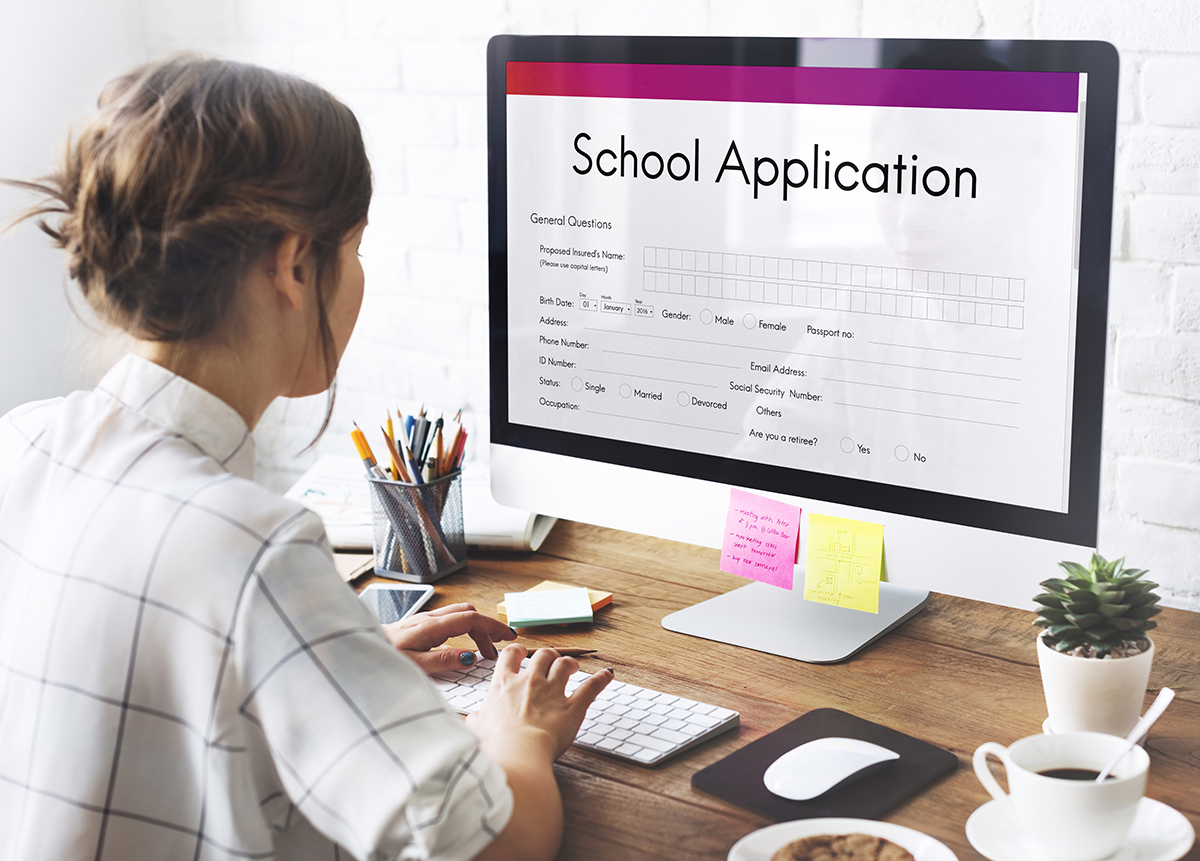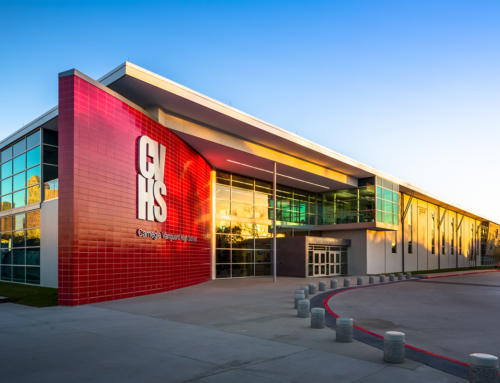In this article, we provide advice for starting the private school application process. In general, start the process early, keep your child’s happiness in mind, and talk with as many people as possible.
The Application Form
Most of the private schools in Houston post application forms to each school’s individual website, while a few private schools release paper applications upon request. As with colleges, private schools require an application fee (usually around $100) to be submitted along with the application form. The fee is non-refundable.
Depending on the grade to which the student is applying, the application is filled out by the parent/guardian in regards to the student’s information, while the student fills out a questionnaire and/or writes an essay in response to a prompt found on the application.
Although the format of the application form varies from school to school, the information required is generally:
- To which grade is the student applying
- Applicant’s date of birth and gender
- Applicant’s address and contact information
- Status of the applicant’s family structure (lives with both parents, parents are divorced, etc.)
- Address and contact information of the applicant’s parents/guardians
- Basic information (such as college or occupation) of parents/guardians
- Previous schools attended by the applicant
- Legacy information, if applicable
- Information regarding special circumstances that affected the applicant’s previous education (medication, counseling, discipline problems, etc.)
- Applicant’s ethnicity and race
Applications will only be reviewed once the student has also submitted the necessary teacher recommendation forms and release forms for transcripts, school records, and health records from the applicant’s previous schools.
Teacher Recommendation Forms
Students applying to Pre-Kindergarten through Grade 5 must submit a Teacher Recommendation Form from a current teacher, while students applying to Grades 6 to 12 must submit English and Math Teacher Recommendation Forms.
Some private schools require a Counselor/Principal Recommendation Form or a Special Interest Recommendation Form for upper grades. Each teacher recommendation form is confidential and parents and students are not allowed to view the completed form.
Teacher Recommendation Forms paint a picture of the applicant’s abilities as a student and as an individual:
- Pre-K and Kindergarten—detailed information regarding the student’s social skills and physical development, such as how the student works in large groups and the student’s spatial awareness
- Grades 1 to 5—detailed information regarding the student’s academic, communication, and social skills in the classroom
- English and Math—detailed information regarding the student’s academic, communication, and social skills in each subject
- Counselor/Principal—detailed information regarding the student’s academic and social skills in and out of the classroom
- Special Interest—acts as a reference form, which details the student’s abilities,
- character, and leadership skills in the activity with which the reference is familiar
The teacher recommendation forms will also provide information regarding the student’s behavioral tendencies in the classroom, such as tardiness, aggression, and study habits. The only portion of the form filled out by the applicant’s parent/guardian is the student’s name and the list of schools to which the student is applying.
Standardized Testing
Almost all private schools require applicants to submit results from specific standardized tests as part of the application process. The standardized tests are designed to test the ability and knowledge of each student and to demonstrate to the school the applicant’s mastery of the material.
Testing normally occurs at the school to which the student is applying. Private schools prefer that testing occur on their grounds, but will approve testing with an outside source with legitimate credentials and a licensed agent proctoring the test.
Students should prepare well for ISEE and HSPT exams as they are scored relative to the peer-testing group; we discuss preparation for these exams in the next section.
Conversely, there is very little that students can or need to do to prepare for the OLSAT, WPPSI, and WISC exams, as these are primarily IQ tests and do not measure a student’s previous academic achievements.
Companies like Rice-Village based General Academic or Houston edtech startup Piqosity.com can help students prepare for these exams.
Independent School Entrance Exam (ISEE)
- Most common for middle and high schools
- Five part test: Verbal Reasoning, Quantitative Reasoning, Reading Comprehension, Mathematics Achievement, and Essay
- Wrong answers are not counted against the student’s score
- The Essay is not scored but is sent to each school for review
High School Placement Test (HSPT)
- Catholic schools only
- Five part test: Verbal Skills, Quantitative Skills, Reading, Mathematics, and Language Skills
- Wrong answers are not counted against the student’s score
- May also include a Mechanical Aptitude, Science, or Catholic Religion test
Otis-Lennon School Ability Test (OLSAT)
- Assesses a student’s Verbal and Non-Verbal abilities
- Verbal Comprehension: Antonyms, Sentence Completion, Sentence Arrangement
- Verbal Reasoning: Arithmetic Reasoning, Logical Selection, Word/Letter Matrix, Verbal Analogies, Verbal Classification Inference
- Figural Reasoning: Figural Analogies, Pattern Matrix, Figural Series
- Quantitative Reasoning: Number Series, Numeric Inference, Number Matrix
Wechsler Preschool and Primary Scale of Intelligence (WPPSI)
- IQ test for students of 2 ½ to 7 years of age
- The student answers questions in each subtest until the student incorrectly answers three questions in a row
- Consists of 14 subtests: Block Design, Information, Matrix Reasoning, Vocabulary, Picture Concepts, Symbol Search, Word Reasoning, Coding, Comprehension, Picture Completion, Similarities, Receptive Vocabulary, Object Assembly, Picture Naming
Wechsler Intelligence Scale for Children (WISC)
- IQ test for students between 6 and 16 years of age
- The full IQ score is determined from four composite scores: VCI, PRI, PSI, and WMI
- Vocabulary Comprehension Index (VCI): Vocabulary, Similarities, Comprehension, Information, and Word Reasoning
- Perceptual Reasoning Index (PRI): Block Design, Picture Concepts, Matrix Reasoning, and Picture Completion
- Processing Speed Index (PSI): Coding, Symbol Search, and Cancellation
- Working Memory Index (WMI): Digital Span, Letter-Numbering Sequencing, and Arithmetic
Transcripts and Records
Applicants must release any and all records to the private schools to which they are applying. These records include official school transcripts, test scores, and health records. Generally, the transcript should reflect the last two academic years as well as the applicant’s current fall semester.
Shadowing, Tours, and Open Houses
The application process is an exchange of information between the student, the parents/guardians, and the school. While the application form and the student interview paints a picture of the applicant for the school, events such as “shadowing,” tours, and open houses paint a picture of the school for the student. These opportunities should be seized upon to fully prepare the student to choose which schools to apply.
In the professional world, newly hired employees will “shadow” or follow one of the company’s veteran employees to get a feel for their new job and the job’s environment. The same is true for private schools. Depending on the school, the applicant will “shadow” a faculty member during various stages of the application process to get a glimpse of the school’s environment and operational practices.
Generally, parents/guardians are not included in the “shadowing” process. The applicant might also be paired with a volunteer student to be shown around the school. The applicant might observe or participate in a classroom in action, be given a tour of the school’s facilities, meet with other faculty members, and/or be introduced to clubs and organizations hosted by the school.
Tours and Open Houses are also important in determining to which schools a student should apply. The parents/guardians and the applicant will experience the school firsthand and meet with the faculty and administrators who would oversee the applicant’s education. Tours might include focal points such as the school’s classrooms, athletics facilities, libraries, and science labs, much like when a student participates in “shadowing.”
The Student Interview
The ultimate goal of the student interview is for the school to personally see what kind of student the applicant is and what characteristics the applicant might bring to the school.
Private schools do not release exact details on the questions asked during student interviews to prevent parents/guardians from conditioning the applicant.
However, preparations can be made so that students are ready for any and all questions sent their way (similar to preparing for job interview):
- Display confidence—the applicant should speak clearly and confidently; firm handshake
- Maintain direct eye contact—direct eye contact shows the interviewer that the student is paying attention; straying eyes show anxiety or indifference
- Research—the applicant should know as much information about the school as possible
Student Practice interview questions:
- Why did you choose this school?
- What do you expect to get out of your education here?
- How have your extracurricular activities influenced you?
- What clubs/organizations are you interested in joining?
- What are your career goals?
- What are your life’s ambitions?
- Where have you traveled and what were your experiences like?






